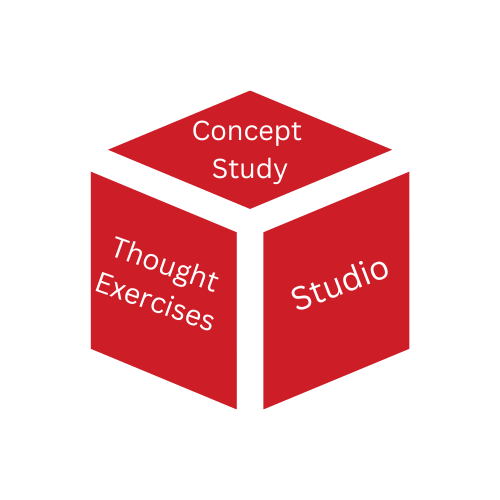The Number Lab Math Block
The Number Lab Math Block is a unique learning framework that challenges the traditional math learning paradigm in almost every respect.
Our learning framework engages learners as mathematicians rather than considering them to be mere consumers of mathematics content. Engaging learners as mathematicians comes by way of a generative perspective of mathematics and a community-focused approach. By this method of engagement, learners are prompted to share ideas as a means of collectively building knowledge through concept-rich, critical discussion.
The Math Block’s design comprises three elements that allow teachers to facilitate critical discussions: Thought Exercises, Concept Studies, and Studio. Through the Thought Exercise element of our Math Block, learners consider a wide range of mathematical ideas as they collectively grapple to solve complex problems. The Concept Study Element of the block challenges learners to very purposefully build on previously acquired knowledge in order to gain broader or new understanding of an idea, while the Studio element of the block allows learners the opportunity to apply their understanding of ideas and receive constructive feedback.
The elements of the Math Block work together to create an experience that deepens mathematical understanding, enhances crucial learning skills, and elevates the learning of the community as well as the individuals.
Learning is Better When it Happens in Community
In a true learning community, sharing ideas is expected, and the sharing of ideas results in discourse. Within the discourse, ideas are validated or refuted. Also, discourse allows teachers an opportunity to conduct active critical assessment and provide learners deliberate feedback concerning their knowledge and learning skills. From the feedback, learners continue to enhance their ability to communicate their thinking, ensuring that it is substantiated with sound mathematics. This makes the learning community stronger because the understanding that is acquired through the rich discourse is deeper, more connected, and rooted in mathematical ideas. Within this learning framework, learners are acting as real mathematicians. They are not passive consumers of information. Instead, they actually generate mathematics as they construct knowledge together.


